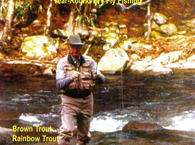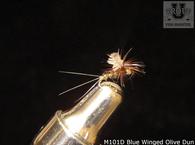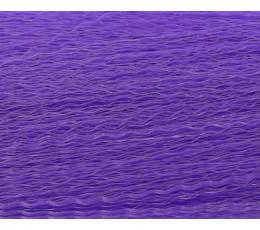Choosing the Right Fly Rod Size, Length, Number of Sections and Action
The fly rod is the primary tool for an angler. Other than the fly, it's the most important tool in your arsnel. Becoming an expert fly fisherman means that you must maximize your casting performance and fly presentations. In addition to your own skills and ability, the fly rod plays the most important role in accomplishing that.
In order to be a good fly rod, it must do three things and do them well. It must cast, set the hook and fight the fish; and it must do them in a manner that that brings the most pleasure to the angler!
Fly Rod Size (Line Weight Size)
The fly rod size and the weight of the fly line must of course be proportionate to the size of the fish you seek to catch. However, more importantly, the rod must be able to cast the size and type of flies you need to use in order to catch the fish you are after.
If your quary is small fish, you need a fly line that allows you to present the small flies delicately and accurately. Conversely, if you are seeking to catch the larger fish, you may need a heavier fly line to turn over larger flies on long casts, even in windy conditions.
Once you determine the species and size of fish you are interested in catching, you can select the correct size and type of flies you need. The next step in the process is to choose the size of fly line that best enables you to present those flies. Finally, you should choose the rod that best cast that particular size fly line.
To summarize, the size of the rod is determined by the size of the line that's required to properly cast the correct size of the fly necessary for the fish you pursue.
In that regard, the most versitile fly line for most freshwater fishing is a five weight.
A five weight will cast a variety of flies that are commonly used for the majority of the species of freshwater fish. Therefore, if you would only have one rod, it should be a five weight.
Fly Rod Length
The length of a fly rod is ofter a matter of preference. To fish the smaller streams, some anglers prefer the shorter rod for better manuverability in the tighter situuations. Others, will prefer the longer rod to reach farther with better control and also for better roll casts.
To fish the larger western rivers, there leaves little question, the longer rod length will increase your casting distance. Steelhead and salmon anglers prefer longer rods where roll cast and large mends are easier to make.
The action of a fly rod is determined by where the rod flexes. A "slow action" rod flexes near the butt of the fly rod while a "fast action" rod flexes near the tip. Obviously a "medium action" rod flexes somewhere in between, usually near the middle of the fly rod. There isn't any set industry standards.
The action of a fly rod determines how well the rod will generate line speed. Line speed
determines how quick the loop travels away from the rod tip. A fast action rod requires less
effort to cast farther than a medium or slow action rod. It also casts more accurately.
Number of Fly Rod Sections
If a one piece fly rod was convenient to transport or carry, rods would not need to come in sections. Two piece fly rods are a little more convenient to transport and carry but they are not easy to carry on hikes, vehicles or airplanes. Despite the additional cost to manufacture, we at Perfect Fly chose to make our first fly rods in four sections because they work well under any situation. We believe that anglers prefer to take a few more seconds to assemble the rod in exchange for the ease of travel.





